UNESCO heritage site in Turkey's Diyarbakır suffers from unmonitored debris dumping
UNESCO World Heritage site Hevsel Gardens of Turkey’s southeastern Diyarbakır province is in dire condition as a result of unmonitored debris dumping and illegal construction. Experts warn that habitat pollution harms biodiversity in the area.
Duvar English
The Hevsel Gardens in Turkey’s southeastern Diyarbakır province, certified as a UNESCO World Heritage site, has been suffering from illegal debris dumping on its Tigris River shore. Construction equipment dumped waste and excavated soil late at night, due to lacking supervision by the local government.
Professor Ahmet Kılıç of Dicle University commented it was “tragic” that the Hevsel Gardens were utilized as a dumping ground. He warned that the biota of the region were negatively affected by the pollution, in an interview with Amida News.
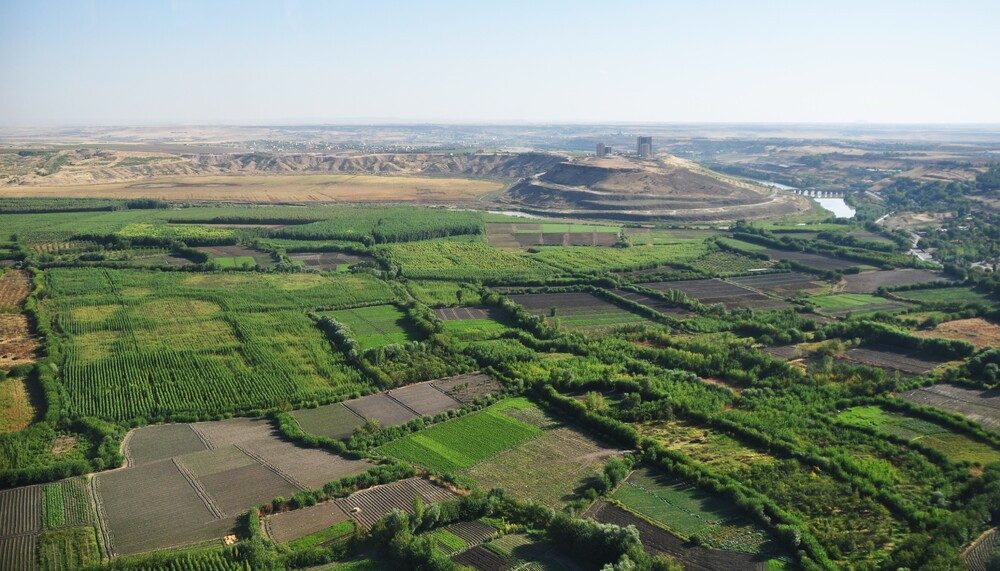
“Continuing such harmful construction work in the middle of the city is simply showing off,” he added. According to the expert, the gardens could be removed from the UNESCO list if the excavation continues.
Kılıç stated that it was the municipality’s and governor’s duty to tighten safeguards on the heritage area. “We must embrace and protect the Hevsel Gardens and the Tigris River from the personal interest of a few individuals,” he said.
Citizens also complained about the illegal construction around the historical Ten Arches Bridge that crosses the Tigris River. They noted that law enforcement and local administrations watched idly as illegal cafés popped up each day around the bridge. Some said that the painted stones of the demolished houses of the Sur district were visible in the walls of some cafés, signaling illegal construction with repurposed materials.
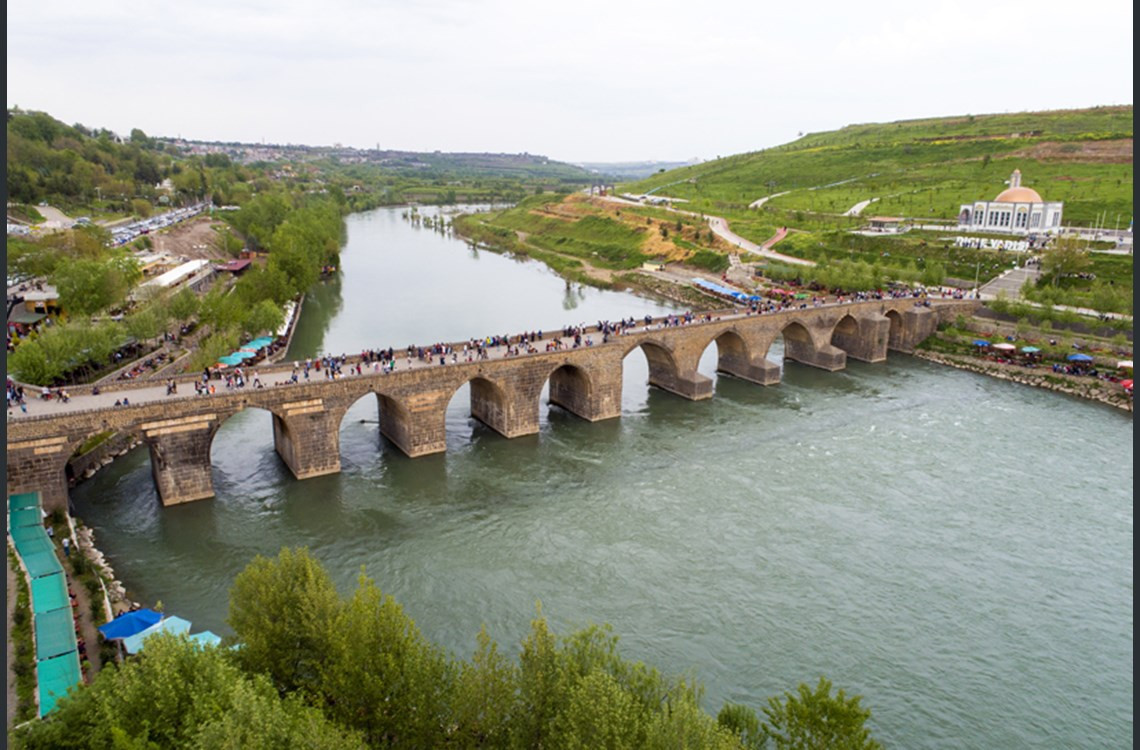
Diyarbakır’s historical Sur district had been practically destroyed after the 2015-2016 clashes between the Turkish military and the outlawed Kurdistan Workers' Party (PKK). The eponymous Diyarbakır Fortress of the district was also damaged in the clashes.
The area underwent significant reconstruction, and residents were displaced to allow government-led construction of luxury villas. Critics have warned that the redevelopment projects damaged the historic fabric of the district irrevocably.


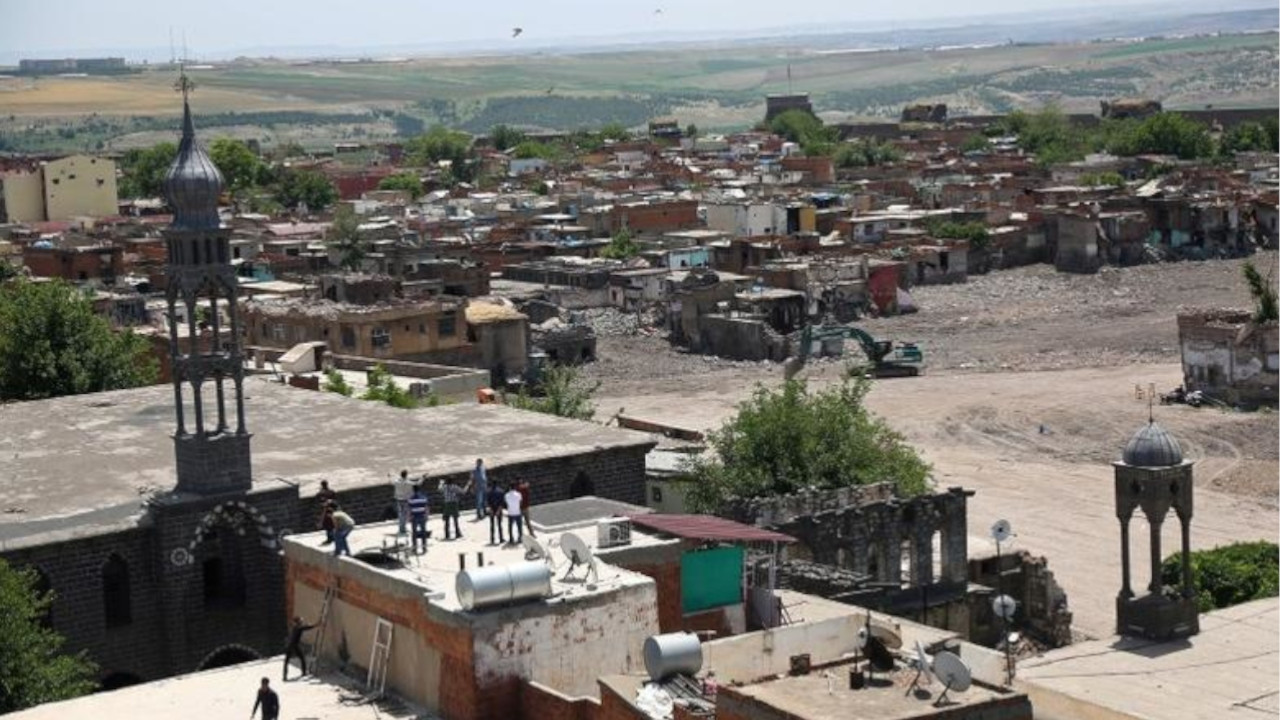 Displaced Sur residents, victims of expropriation, call for housing justiceHuman Rights
Displaced Sur residents, victims of expropriation, call for housing justiceHuman Rights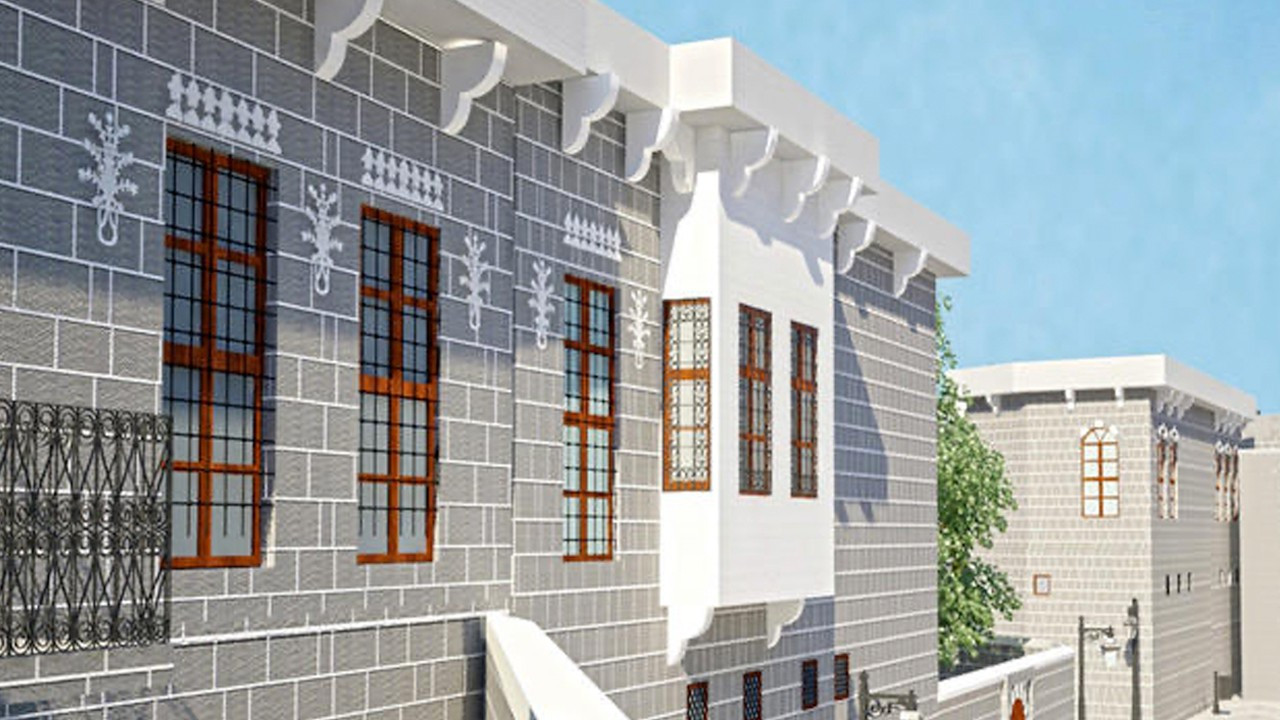 Diyarbakır's Sur residents suffer from replacement of homes with luxury villasPolitics
Diyarbakır's Sur residents suffer from replacement of homes with luxury villasPolitics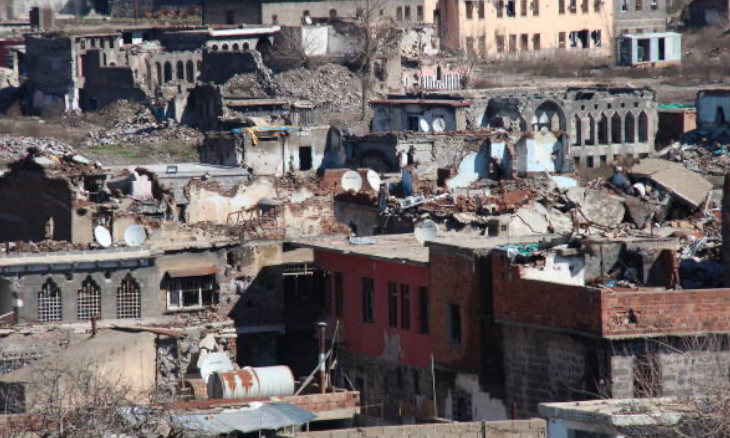 Harmful redevelopment in Diyarbakır's historic Sur district disconcert architectsCulture
Harmful redevelopment in Diyarbakır's historic Sur district disconcert architectsCulture